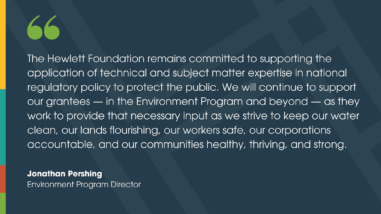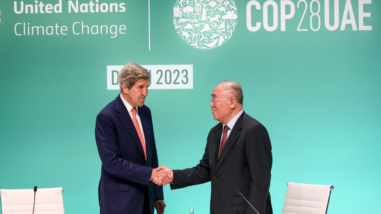International Council on Clean Transportation
For Expansion Of Staff And Work On US Heavy-duty Fuel Economy Standards
-
Amount$450,000
-
Program
-
Date Awarded10/27/2008
-
Term12 Months
-
Type of SupportProject
Strategies
About the Grantee
Grantee Website
www.theicct.org
Address
1500 K St. NW, Suite 650, Washington, DC, 20005, United States
Grants to this Grantee
for general operating support
The International Council on Clean Transportation’s mission is to decarbonize all road transportation by 2050 and substantially decarbonize marine and aviation. It provides regulators and other key stakeholders at city, state, and national governments with research and analysis for policies that reduce emissions from vehicles. In the major vehicle markets — U.S., Europe, China, and India — the council is advancing strong electric vehicle policies at national and regional levels. (Substrategy: Electrification)
for general operating support
The International Council on Clean Transportation works to provide regulators and other key stakeholders with research and analysis to enact policies that cut emissions from vehicles, protect public health, and minimize climate change. We recommend renewed support for its work to secure adoption of advanced standards for tailpipe emissions in cars and trucks and to ensure diesel has a sulfur content of 15 ppm or less. These two policies would reduce particulate matter emissions from vehicles in China, Brazil and Mexico by over 80 percent by 2030.
for general operating support
The mission of the International Council on Clean Transportation is to protect public health, minimize climate change, and improve quality of life for billions of people as the world’s transportation infrastructure grows. We recommend renewal of our support for the organization to work primarily in China, Mexico, and Brazil to secure adoption of Euro VI-equivalent standards for tailpipe emissions in light duty and heavy duty vehicles and to ensure diesel has a sulfur content of 15 ppm or less. These two policies will reduce particulate matter emissions from vehicles by over 80 percent by 2030.



